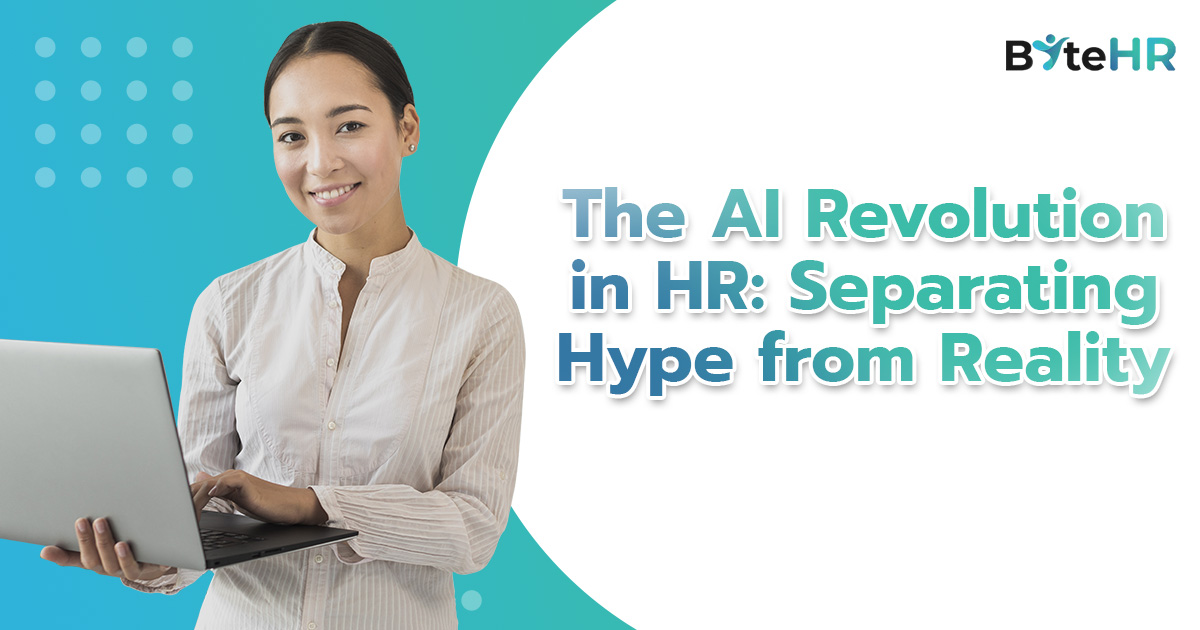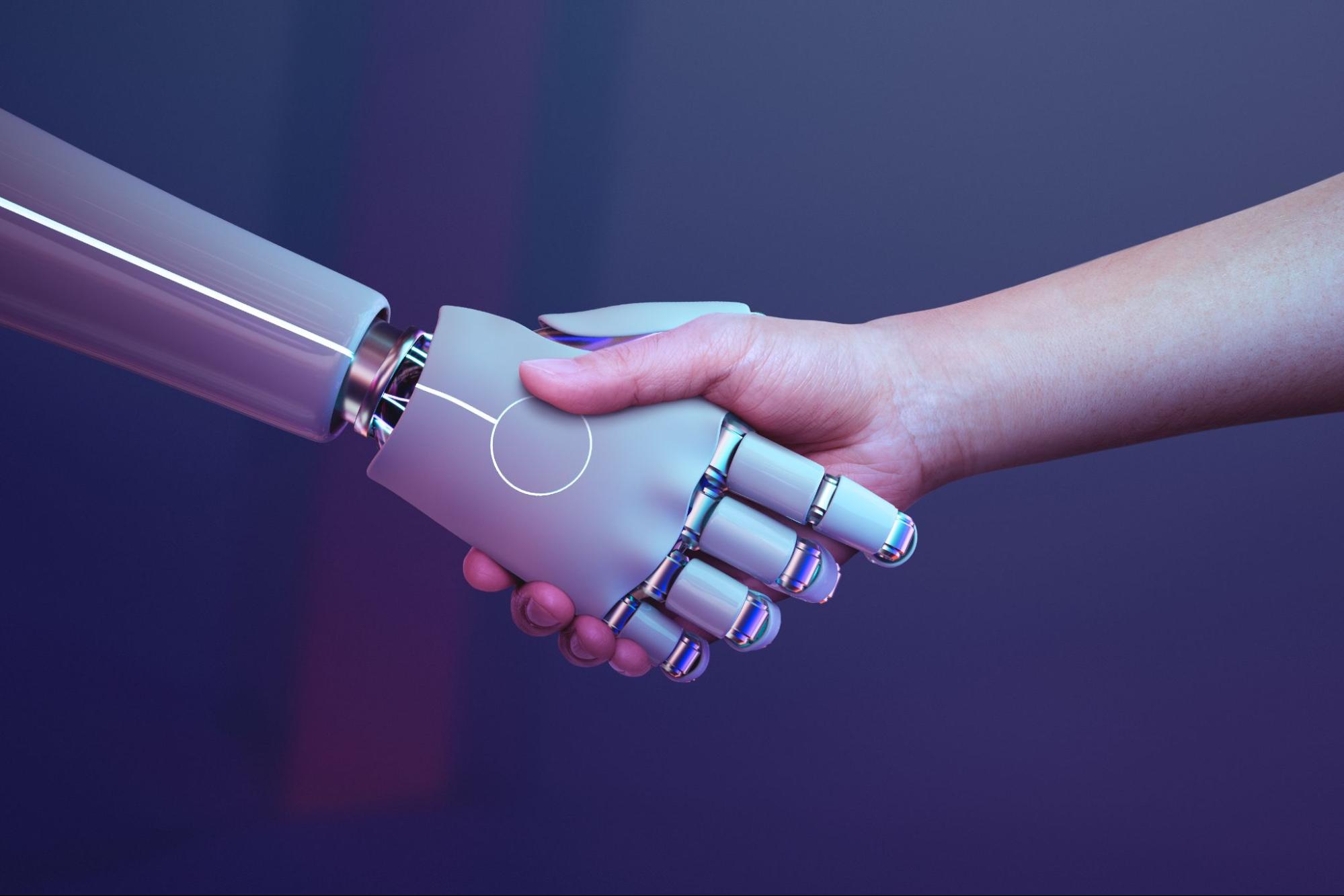The AI Revolution in HR: Separating Hype from Reality
The AI Revolution in HR: Separating Hype from Reality

In recent months, Artificial Intelligence (AI) seems to be on everyone’s mind, particularly in the HR industry. As a provider of HRMS software for companies in Thailand, we've heard concerns from many of our users about AI potentially taking over their jobs. Today, we'd like to address these fears and offer a more balanced perspective on AI's role in HR.
First, it's crucial to understand that AI isn't a new phenomenon in our industry. In fact, we've been using various forms of AI for decades, albeit in increasingly sophisticated ways. From chatbots handling initial queries to automated processes streamlining workflows, AI has long been a silent partner for all of us in HR. The software tools you use daily such as CRM systems, Applicant Tracking Systems (ATS), HRIS software such as ours, incorporate AI to make your work more efficient.

Let's look at some simple examples of how HR administrators can use AI today to improve their processes and save HR time:
Payroll Processing:
AI can automatically flag unusual patterns in overtime or expense claims, helping prevent errors or fraud.
It can predict seasonal fluctuations in payroll, helping with budgeting and forecasting.
Recruitment:
AI-powered tools can scan resumes and match candidates to job requirements, saving time in initial screening.
Chatbots can handle initial candidate queries, schedule interviews, and provide basic information about the company and role.
Employee Onboarding:
AI can personalize onboarding materials based on the new hire's role and background.
Virtual assistants can guide new employees through paperwork and basic training modules.
Performance Management:
AI can analyze performance data to identify trends and provide insights for managers.
It can send automated reminders for performance reviews and goal-setting sessions.
Learning and Development:
AI can recommend training programs based on an employee's role, skills, and career aspirations.
It can track learning progress and adapt course difficulty accordingly.
These examples show how AI is enhancing HR processes and not replacing HR professionals. The human touch remains crucial in interpreting AI insights and making final decisions.
So why the sudden uproar about AI? Part of it stems from the Silicon Valley Venture Capital model in the Western world, which thrives on creating hype around the "next big thing" to attract large amounts of investment. We've seen this pattern before with the dot com revolution, social media networks, cryptocurrencies and now AI. But this time, the interest centers on Large Language Models (LLMs), popularized by companies like OpenAI.
LLMs represent a leap forward in what we call generative AI. But what does this mean? Let's break it down:
Predictive AI, which we've been using for years, analyzes existing data to forecast future outcomes or trends. It's like a weather forecast for business decisions. Generative AI on the other hand, creates new content based on patterns in existing data. It's similar to an artist who can create new paintings in the style of famous artists he has studied. LLMs are a form of generative AI, predicting and generating human-like text based on vast amounts of training data.
As these applications continue to develop at a rapid pace, there should be no cause for concern. History suggests that technological advancements tend to make us more productive rather than obsolete. Just as the industrial revolution didn't eliminate human workers but rather changed and expanded their roles, AI is poised to help us do more with less, boosting overall economic productivity and creating different roles that will become clearer as the dust settles.
However, this doesn't mean companies should rush to adopt AI blindly. While this technology is impressive, it's important to note that real enterprise value in terms of use-cases is still unclear and we need to tread with caution. The field of AI, especially in its current form, is still in its infancy. There's no clear, one-size-fits-all path for integration and the direction of development remains uncertain.
So, what's the takeaway? There's no need to panic or succumb to FOMO (Fear of Missing Out). AI is a tool that, when used responsibly can enhance our capabilities and make our work more efficient. It's not about replacing human workers but augmenting their abilities and freeing them to focus on tasks that require uniquely human skills like empathy, creativity, and complex decision-making.
As we navigate this evolving landscape, we at ByteHR remain committed to providing HR solutions that responsibly incorporate AI to enhance, not replace, the human element in HR. We encourage you to stay informed about AI developments but approach them with a calm, measured perspective.
Remember, the goal of technology in HR has always been to make our jobs easier and more effective, allowing us to focus on what truly matters: managing and developing human talent. AI is just the latest tool in this ongoing evolution. Embrace it wisely, and it can be a powerful ally in your HR journey.


